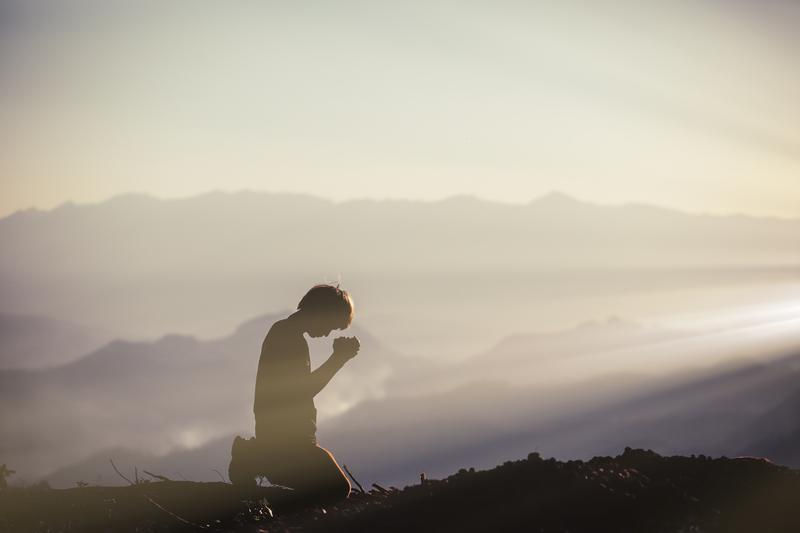The Deacons Discuss Prayer
- Kourinthia Burton

- Nov 1, 2019
- 6 min read
Updated: Nov 7, 2019

The Origins of Prayer
Through prayer we confess, we give thanks, we ask…. And we are comforted, challenged, empowered, forgiven and sent. Brother Lawrence, a seventeenth-century Carmelite Brother, held the conviction that prayer is not “saying prayers,” but rather a way of living that becomes prayer (“The Practice of the Presence of God.”) Furthermore, prayers to God necessarily lead us closer to our neighbors.
Many of us, it seems, feel inadequate to the holiness of prayer. For this, Jean Gill advises us “Pray as you can (which is the name of her book), not as you can’t.” In his book, “A Guide to Spiritual Practice,” M. Renee Miller outlines several categories of practice, including:
Meditative Practice (such as Daily Office practice, bead practice, centering prayer)Ministry Practice (including hospitality practice, gratitude practice)Media Practice (including music practice, movie practice)Mind Practice (such as reading practice, study practice)Movement Practice (such as walking practice, handwork practice)
By considering these forms of prayer, we are able to allow God to enter our lives in infinite ways than setting limits on God. Prayer doesn’t need to be – and shouldn’t be – limited to artfully constructed phases, carefully scripted or memorized verses. Prayer is instead a practice of honest self-expression, a practice of illumination in which we see sickness and disorder in the light of the resurrection, and as our commitment to act for others. In the words of Pope Francis, "You pray for the hungry. Then you feed them. This is how prayer works."
The Bible has much to offer about prayer. In Genesis, we see Abraham interceding for the people of Sodom (Genesis 18:22-32) . God relents from God’s initial intention to destroy all the people of Sodom when Abraham asks God to do so for the sake of just five righteous people. Jesus prayed often, sometimes withdrawing to pray and other times with others. Jesus prayed to God before he raised Lazarus to life (John 11:41-44) .
In what is called his High Priestly Prayer (or Farewell Prayer), Jesus prays for his disciples and all followers: “… I ask you to protect them from the evil one….Sanctify them in the truth; your word is truth…. I ask not only on behalf of these, but also on behalf of those who will believe in me through their word, that they may all be one.” (John 17: 15, 17, 20).
Jesus also prayed for himself in his hour of need in the Garden of Gethsemane:
“And going a little farther, he threw himself on the ground and prayed that, if it were possible, the hour might pass from him. He said, “Abba, Father, for you all things are possible; remove this cup from me; yet, not what I want, but what you want.” (Mark 14: 35-36)
We may wonder whether God hears and acts. It’s equally tempting, if God does not respond in the way we would design, to think that God does NOT hear us, or more frightening yet, does not care. Scripture promises us that this is not so. In Matthew 7:9-9 , we hear Jesus telling his followers: “Ask, and it will be given to you; search, and you will find; knock, and the door will be opened for you. For everyone who asks receives, and everyone who searches finds, and for everyone who knocks, the door will be opened.”
When we read this scripture, we need to remember that God loves us more than we can ask or imagine. And, that God – not us – is the Master Builder. So what may look to us like God not fulfilling what our hearts desire does not mean that God does not love us; for God is with us always.
Intercessory Prayer

Intercession can be thought of as “…part of an unending song to God, our creator, sanctifier, and redeemer,” according to Deacon Ormonde Plater, in his book entitled “Intercession: A theological and practice guide.” We make our intercessions on Sundays through the Prayers of the People, lifting to God our prayers for all in need. Our acts of prayer give us the opportunity to:
Adore and praise God
Give thanks
Confess sins
Ask for mercy
Intercede for others
Following the example of Christ, it is both our sacred duty and our grace-filled privilege to bring the needs of individuals and communities to God in prayer. In making intercession, we not only express our love for those we pray for, but also make testament to our faith that God cares for all creation. And, in our interceding, we not only ask for God’s help, but we make our offering of help as co-creators in God’s holy dream, as participants in this healing. As we said last week, the words of Pope Francis described our role saying, "You pray for the hungry. Then you feed them. This is how prayer works." Through our intercessions, we giving thanks to God for the creation of those we pray for, and ask God for mercy, justice, peace, and forgiveness. Plater points out that in our naming, we are blessing God for those we name. The association between naming and blessing is found throughout the New and Old Testaments, and is found in our sacraments – such as Holy Baptism. In fact, on January 1 we commemorate the naming of Jesus through the “Feast of the Holy Name.” People of all faiths make daily, private, intercessions. Our response to learning about the sickness or death of a loved one is most likely an intercessory prayer, asking God for healing and blessing. Or, prayers may be more formal, such as prayers of Muslims multiple times during the day, or prayers of the hours, such as those observed by monastic orders. Some of us set time aside time each day, perhaps upon waking or before sleep, to pray for a list of people, or communities known to us. Private intercession is the loving practice and offering of all people of faith.
During our communal worship, we Episcopalians pray for members of our church family, the world, the church, and our communities through our Prayers of the People. These prayers belong to the assembly, and represent the personal prayers of the congregation. The Book of Common Prayer offers several scripted forms for Prayers of the People, as examples, with the intention that the Church compose prayers specific to their communities and context within the the categories provided: The Universal Church
The Nation and all in authority
The welfare of the world
The concerns of the local community
Those who suffer and those in any trouble
The departed The deacon leads these prayers, with the intention that the intercessions themselves are offered by the people. The deacon may mention communities in dire need (such as members who are seriously ill or who have died, or victims of natural disasters, mass shootings, or a particular group in need), but the list should be moderate and focus on the direst needs. In response to these offerings by the deacon, the people offer their individual prayers, preferably aloud. It is this active participation of the congregation that makes these offerings true prayers of the people. Through our baptism, we become part of the “priesthood of all believers.” As part of this holy priesthood, we enter into a life of habitual, continual prayer in private and in community. We each are commissioned as pray-ers. Thanks be to God!

Coming Soon! Praying as a community
During Advent, we are going to experiment with a more participatory style of offering the Prayers of the People. These prayers will still be printed in the service program, but instead of the Deacons reading each prayer (called “biddings”), YOU, members of the congregation, are asking to offer the biddings as the Spirit moves you. The Deacons will open and close the Prayers of the People, then more (or more!) of you will read the first bidding. At the end of each bidding, as usual, the congregation will respond with the bolded asking (such as “Lord, hear our prayer) together.
Here is an example how the Prayers of the People will look in Advent: OPENING BIDDING PRAYER Deacon: Holy One, you bid us to a life of discipleship and service. As we seek to follow in the ways of Jesus, we bring our needs, our hopes, and our fears to you. We ask for your love and mercy saying, ALL: Lord, hear our prayer. Congregation Member(s): We pray for Michael, our Presiding Bishop, the clergy of the Diocese of San Joaquin, and especially our Cathedral clergy, that they may lead and teach us your ways. We pray also for Toni, our seminarian. Deacon: For your love and mercy we pray saying, ALL: Lord, hear our prayer. THE PRAYERS CONTINUE IN THIS FORMAT WITH DIFFERENT MEMBERS OF THE CONGREGATION TAKING A PETITION. THE PRAYERS OF THE PEOPLE CONCLUDE WITH A DEACON OFFERING A CLOSING BIDDING PRAYER.
Yes, congregants offering a petition will need to speak loudly; but, this is a wonderful way for us, as a congregation, to allow the Holy Spirit to stir us and more fully participate in the Prayers of the People. Deacon Nancy and Deacon Terrance






Comments